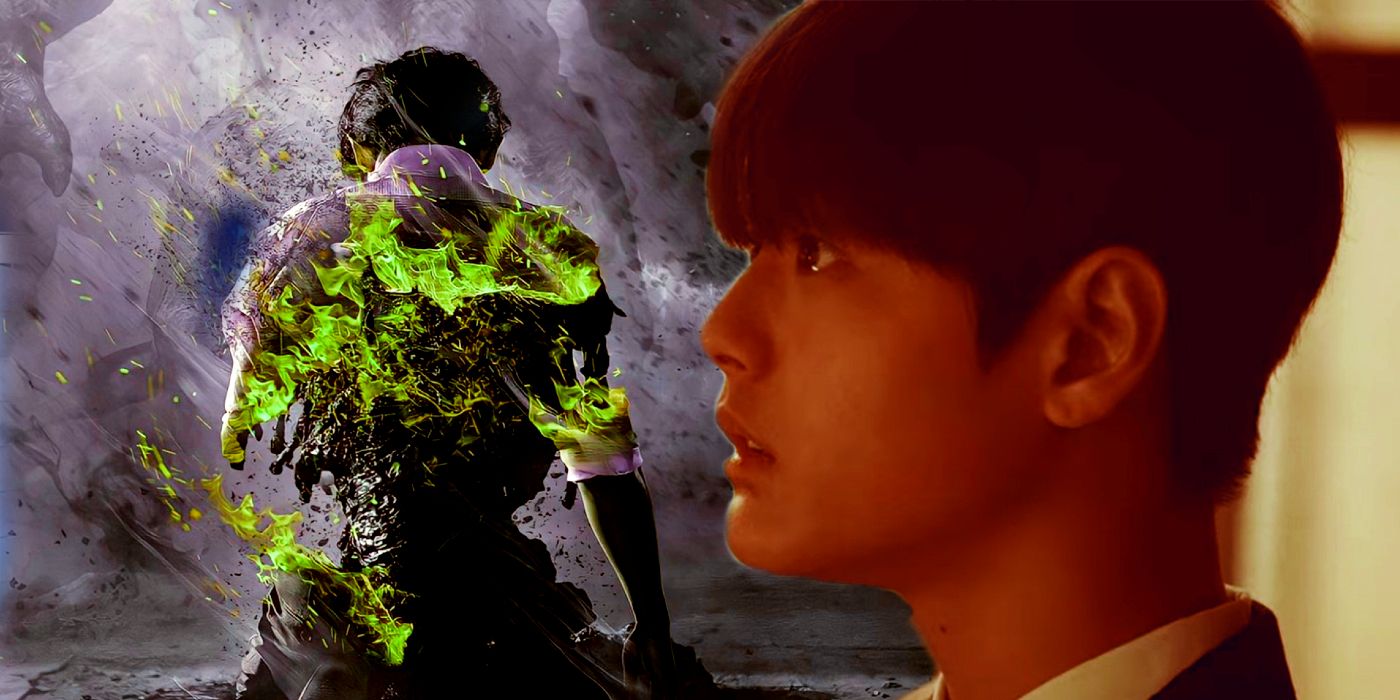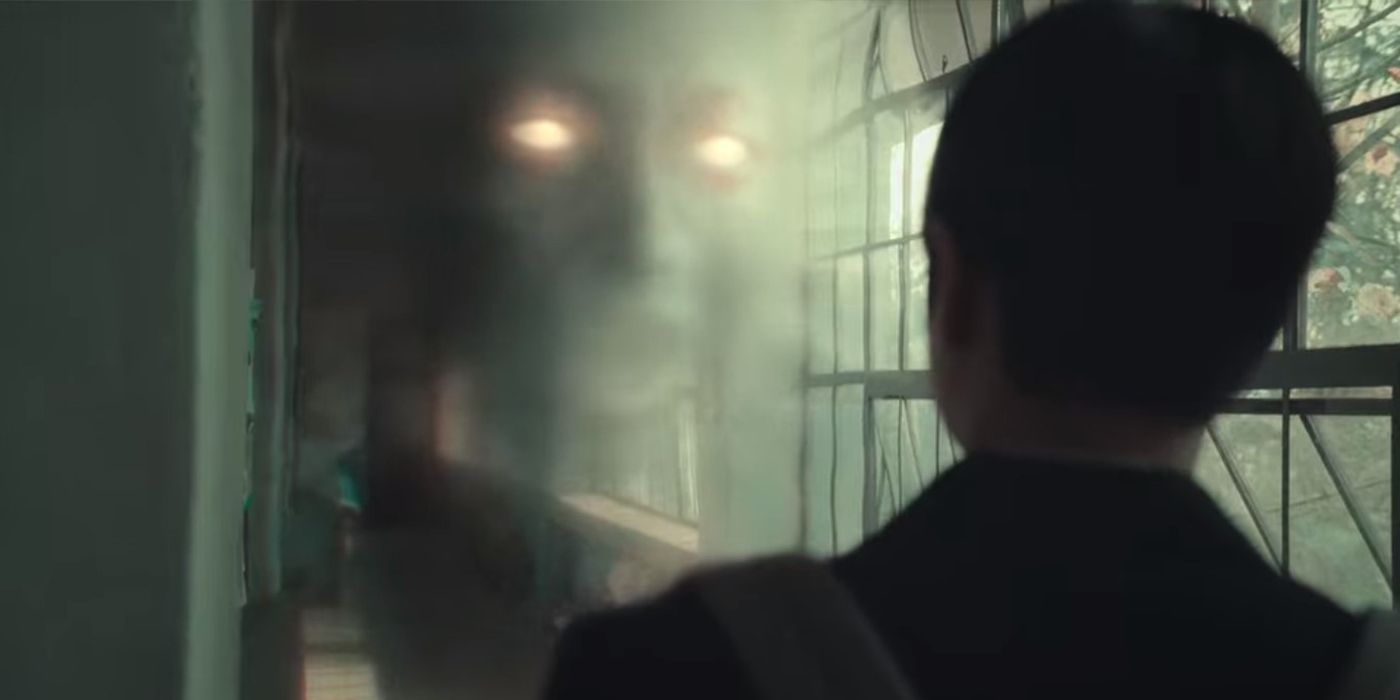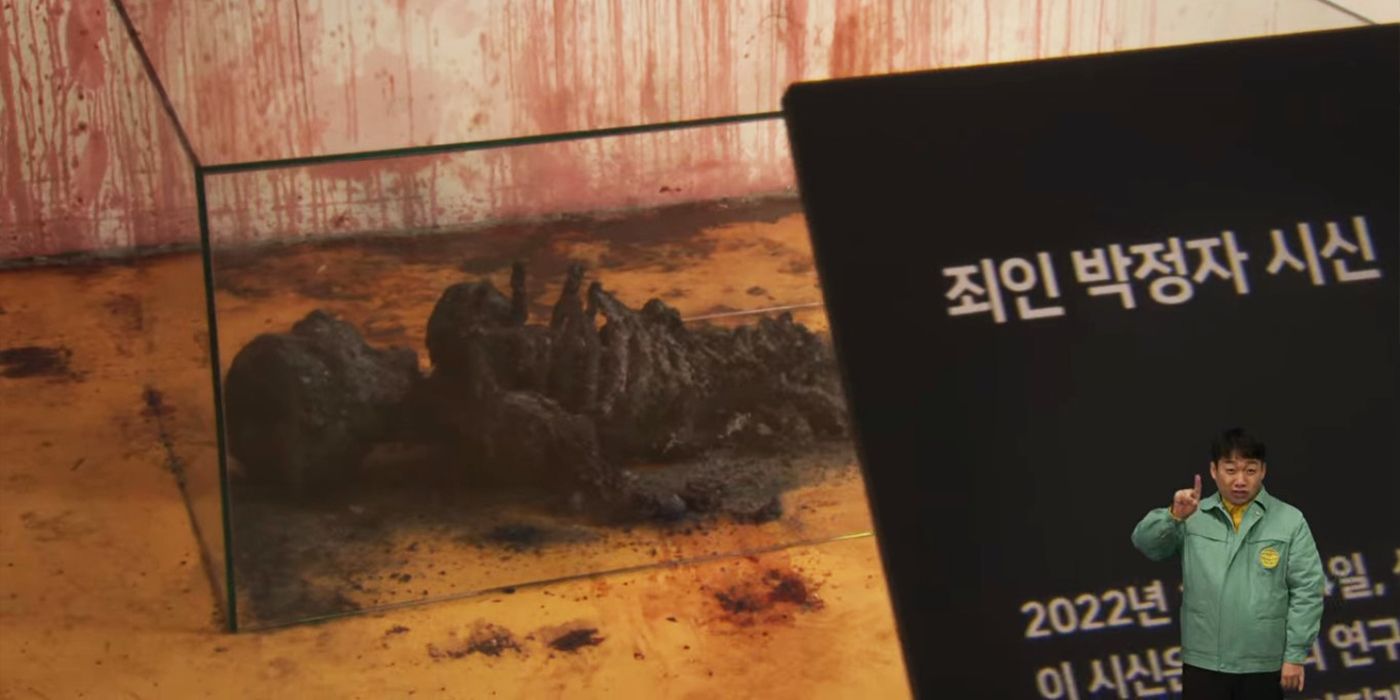
Warning: the following contains SPOILERS for Hellbound.
Hellbound’s 6-episode narrative is divided by a time jump, and certain key events happen in the distant past. Pulled from the nightmarish imagination of Peninsula and Train to Busan director Yeon Sang-ho, Hellbound examines how a modern society’s reactions to horrific and unexplained supernatural events can be even more terrifying than the events in question. In order to fully tackle Hellbound’s complex sociopolitical themes, Yeon Sang-ho employs flashbacks and a time jump.
Hellbound director Yeon Sang-ho’s premise for the series was first explored in 2006, in his 11-minute rotoscope animated short called 지옥: 두개의 삶 or The Hell (Two Kinds of Life). In 2019, Sang-ho worked with an artist to flesh out Hellbound as a webtoon, which is a type of Korean webcomic that’s designed for mobile devices. A year later, Netflix greenlit the production of Hellbound as a series.
Hellbound’s first 3 episodes received positive reviews from critics at international film festivals in Toronto, Busan, and London. Not surprisingly, Hellbound’s November 2021 release on Netflix saw enough success to even rival the popularity of Squid Game. But while Hellbound’s first 3 episodes are set in 2022, the story’s actual beginnings happen 20 years in the past. Here's Hellbound's entire timeline explained.

Hellbound season 1 episode 3 reveals that New Truth Society Chairman Jung Jin-soo (Yoo Ah-In) received a decree of death from the supernatural beings himself 20 years ago, when he was just a teenager. Unlike most of the Hellbound whose decrees are enacted shortly after they were pronounced, Jin-soo had to wait for two full decades before his actual death. As Jin-soo explains, he’s lived his entire life in fear, tortured by the certainty of his own brutal, demonic demise. In fleshing out Chairman Jung Jin-soo’s past, Hellbound examines the potential impacts of long-term torture on an individual. In fact, it’s made clear that this ordeal is what pushes Jung Jin-soo to become the founder of The New Truth Society. This is why Jin-soo is the most important of the main characters in Netflix’s Hellbound.
While Jin-soo can’t make sense of why he was decreed to die and be dragged down to Hell, he finds meaning in coming up with elaborate lies so others in his situation don’t have to suffer the same long-term mental torture that he went through. Even though The New Truth Society’s authority is built on lies, the organization does successfully provide this service to its Hellbound followers, those whose loved ones have received decrees, and ordinary folks who are simply trying to make sense of the supernatural occurrences. At the same time, as the latter episodes of Hellbound reveal, exploiting fanaticism, even if it’s inherently well-meaning, can have disastrous and sinister results. This is the core message of Hellbound, and these crucial points are set up by the series’ flashbacks to Chairman Jin-soo’s origins in 2002. In some ways, this is similar to Frank Herbert’s Dune, the basis for Denis Villeneuve’s 2021 sci-fi movie reboot of the same name, which also warns against the inherent dangers of following even the most well-meaning messiah. In the age of charismatic influencers, preachers, and politicians, Dune and Hellbound’s examinations of fanaticism and belief are even more crucial.

Hellbound’s first episode starts exactly on November 10, 2022. This is the day when a well-documented execution by Hellbound’s demonic hulking creatures compels South Korean police to investigate the supernatural events. In turn, this prompts police detective Jin Kyung-Hun (Yang Ik-Joon) to make contact with The New Truth Society’s Chairman Jung Jin-Soo, setting the series’ events in motion. By setting the story’s opening near the actual present time, Hellbound establishes a standpoint that’s relatable to all audiences. In 2022, the internet continues to spread news and rumors faster than information can be verified.
The loud, neon-lit Arrowhead streamer, Hellbound’s Twitch streamer analog, uses this opportunity to gather clout, amass followers, and preach the New Truth Society’s religious doctrines and morality-based explanations for the supernatural events. Many who receive Hellbound’s decrees flee to distant isolated locations to prevent their shameful executions from being filmed and ending up on social media. Hellbound’s main characters use the internet to gather info and make their next decisions. Considering how easy it is to fake video evidence, the public remains divided on whether or not the decrees and executions are real, despite the growing amount of videos online. The events are only largely accepted as real once The New Truth uses television news networks to nationally broadcast Park Jeong-ja’s (Kim Shin-Rock) execution live. By setting Hellbound in the very near future, director Yeon Sang-ho’s nightmarish tale hits closer to home.

Hellbound season 1 episode 4 is when the time jump begins, setting up Hellbound’s shocking finale. 5 years have passed since Park Jeong-ja’s live demonic execution. This is enough time for The New Truth Society to grow from a niche cult into a full-blown organized religion. After Chairman Jung Jin-soo’s death, Pastor Kim Jeong-chil (Lee Dong-hee) takes the reigns and builds a large and imposing building to serve as the headquarters for The New Truth Society. The site of Park Jeong-ja’s execution becomes just one of the many sacred sites constructed by The New Truth, venerating where the supposed acts of God have taken place. Pastor Kim appoints Deacons to serve as the organization’s enforcers. Without Chairman Jin-soo’s idealistic asceticism and stern moral compass, The New Truth Society devolves into a proto-fascist religious bureaucracy. The 5-year time jump from episode 3 to episode 4 is necessary for Hellbound to show how a cult can leverage fanaticism into secular political authority and power.
Much like the Fremen of Dune, the members of The New Truth Society in 2027 continue to follow the ideals of their messiah, even though that messiah is no longer around. Although Jung Jin-soo was necessary to establish the organization’s message, the message itself has become bigger than Jin-soo, and has also been distorted to fit the needs and wants of The New Truth Society’s central committee, which could be an analog for Korea’s massive megachurches. In fact, the biggest megachurch in the world, the Yoido Full Gospel Church, can be found in South Korea. Despite a series of scandals involving its highest officials, the Yoido Full Gospel Church boasts a congregation of 800,000 individuals. Moreover, Pastor Kim Jeong-chil’s name is suspiciously similar to Kim Jong-il, the former supreme leader of North Korea, who, like Pastor Kim, only inherited power from his predecessor.
Hellbound’s time jump and flashbacks allow these parallels to come to light. Although Netflix’s 2022 lineup of shows doesn’t yet include Hellbound season 2, the fantasy series’ compelling tale of fanaticism and morality is bound to continue. Not only does Hellbound end on several cliffhangers, it’s fast-rising popularity means that chances are high for Netflix to order a second season.
from ScreenRant - Feed https://ift.tt/3cIZYZ8


0 Comments